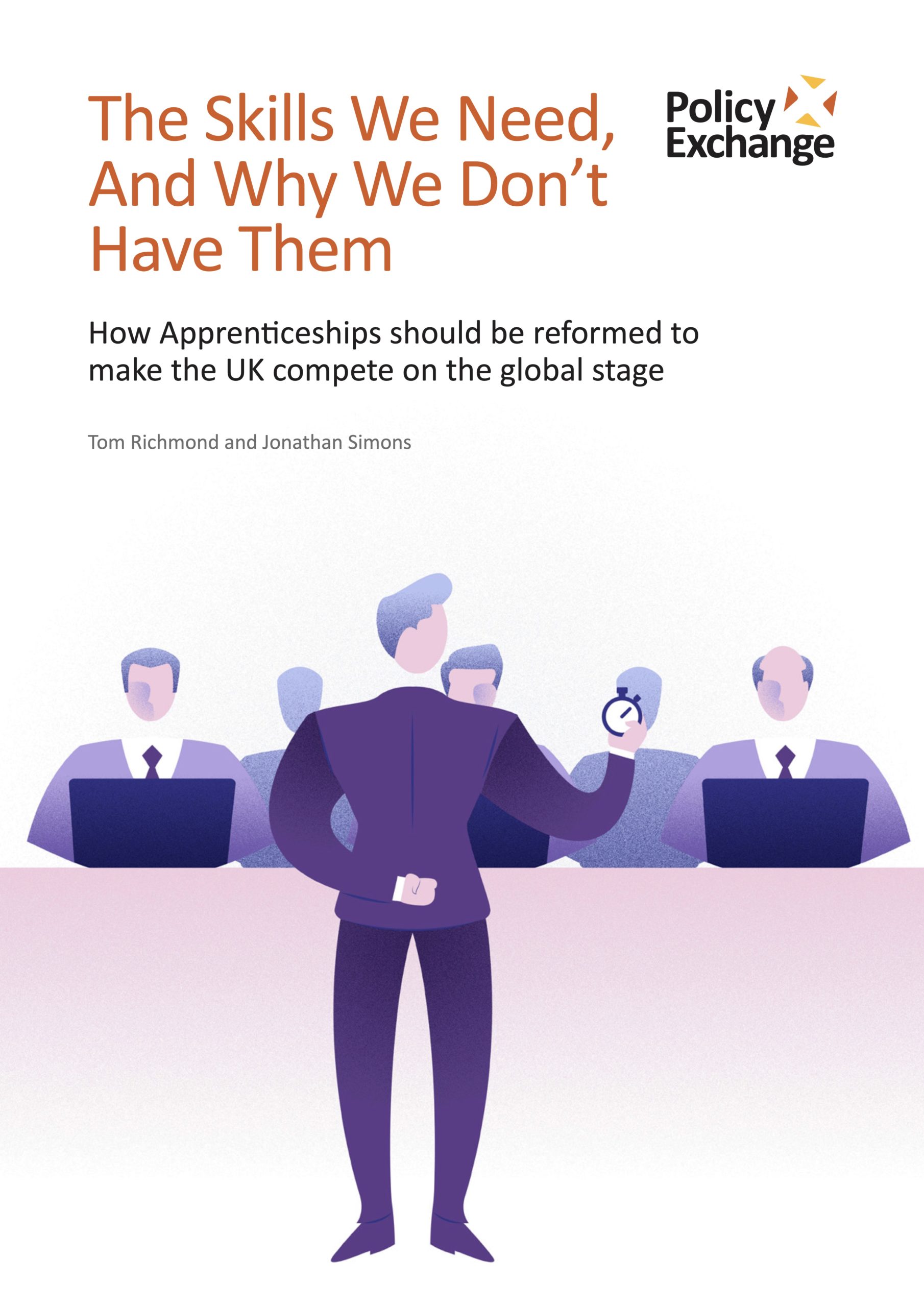
The skills we need, and why we don’t have them
Apprenticeships programme needs stronger focus on quality, says Policy Exchange.
New report urges the government to put in place a high level quality target alongside its existing commitment to create 3 million new Apprenticeship starts by 2020
The Apprenticeships programme will not deliver its full potential unless a greater focus is placed on improving the quality of all Apprenticeships, according to a new report, which concludes the government has focused too much on numbers and too little on the quality of programmes to date.
The paper by leading think tank Policy Exchange urges policymakers to put in place a new top level target focused on driving up standards of Apprenticeships to match the best in the world, alongside the government’s existing manifesto pledge to create 3 million new apprenticeships by 2020.
It says that of the £2.5bn that the Levy is expected to bring in annually by 2020, £500m will be spent on Apprenticeships which are not in line with a traditional definition of an apprenticeship.
The report calls for:
- The introduction of a new high level quality target for the Apprenticeships programme alongside the existing focus on quantity, creating a ‘Numbers Plus’ approach to future Apprenticeships
- A beefed up Institute for Apprenticeships to become the guarantor of quality and the voice of employers
- The qualifications regulator, Ofqual, would be required to set the standards for how future Apprenticeships should be assessed
Jonathan Simons, co-author of the report, said:
“A pure focus on numbers risks undermining the credibility of the Apprenticeships programme in the eyes of employers and young people. A skills system in a country that works for everyone, not just a privileged few, has the potential to do so much better.”
Tom Richmond, co-author of the report, added:
“Some of the apprenticeships designed by Trailblazers are excellent and promote the kind of training that embodies apprenticeships in this country and abroad.
But there are a number of weaknesses in the Apprenticeship reforms and the wider strategy that threaten to undermine the principles at the heart of it. In particular, the desire for speed has reduced the time available to put sufficient quality filters and a rigorous definition of what an Apprenticeship is.”
Melanie Richards, Vice Chairman at KPMG, said:
“This critical piece of research shines a light on the current state of apprenticeships in the UK. It’s clear the absence of a strong technical education route, combining on and off-the-job training, has contributed to poor social mobility across the country and hindered much of the adult population’s opportunity to learn and develop new skills.
Apprenticeships have an important role to play to help us upskill and kick start UK productivity. Our own high quality apprenticeship programme, KPMG360°, has helped us attract talented people who otherwise wouldn’t have joined our firm, deterred by the traditional graduate entry route.
It is now vital government and business work in tandem to establish and support a flourishing apprenticeship system, and offer people a real choice when it comes to learning.”


